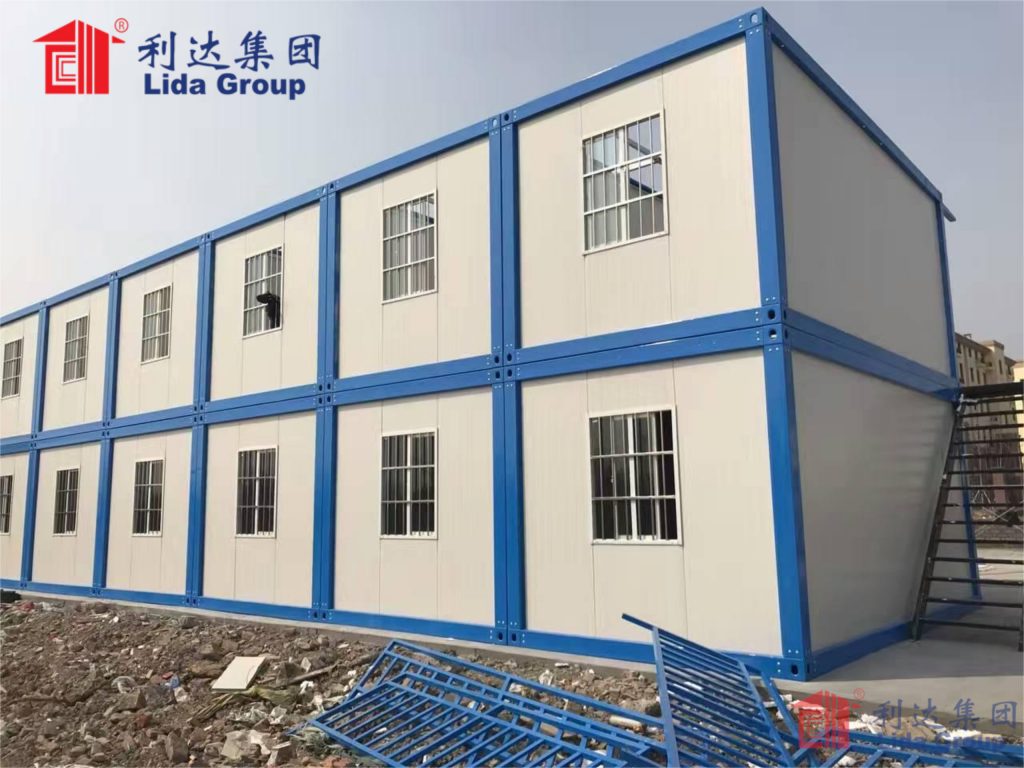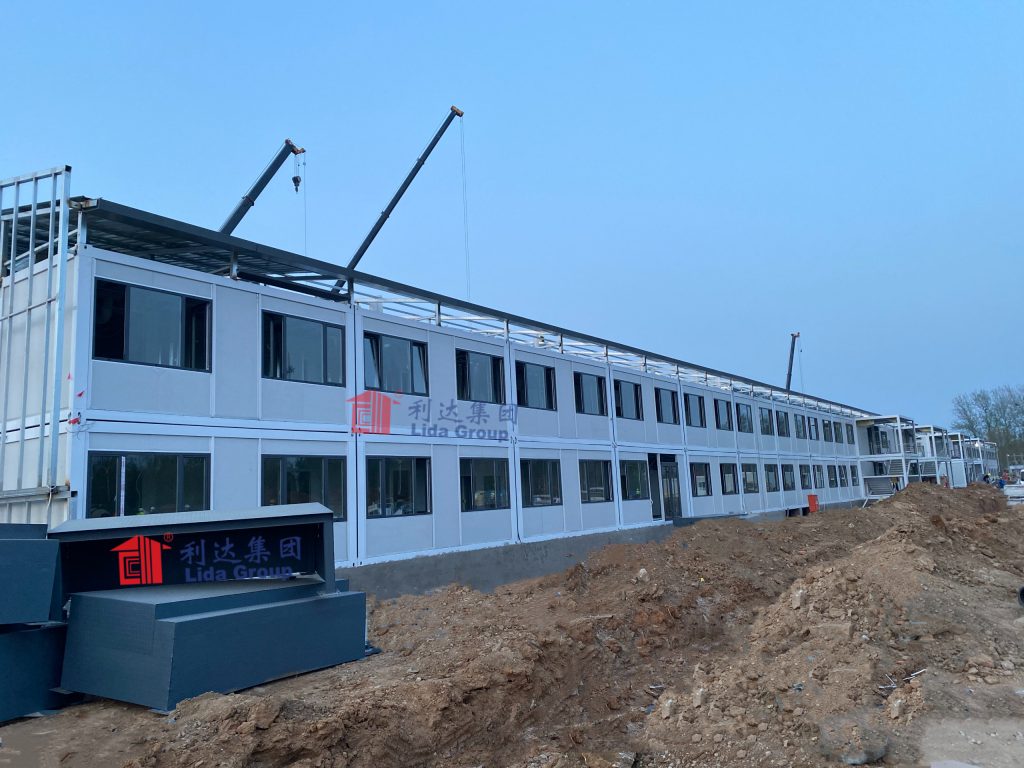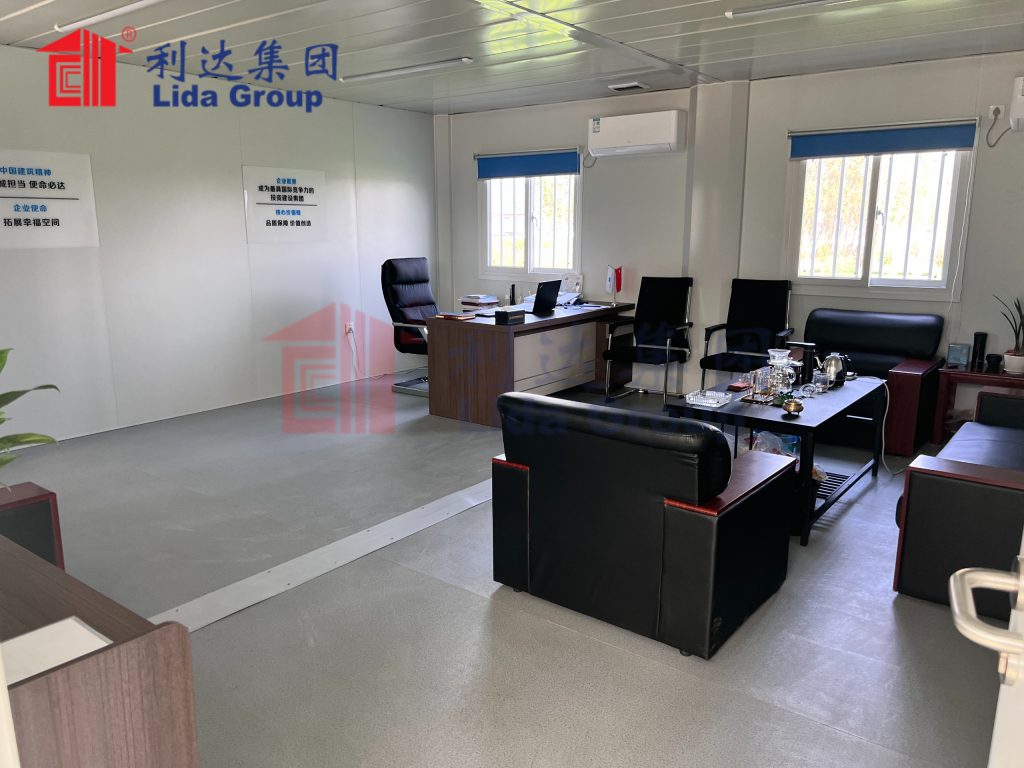Lida Group’s innovative containerized construction approach was highlighted at this year’s Global Construction Conference as providing significant advantages over more traditional building methods. The conference, held in Shanghai, brought together construction industry leaders from around the world to discuss the latest innovations and trends in building design and technologies.
During one of the conference sessions focused on emerging construction solutions, Lida Group’s CEO Ziwen Mu gave a presentation about his company’s container-based modular building system and how it is transforming temporary and permanent construction projects. Mu explained that Lida Group designs and manufactures standardized building modules made from recycled shipping containers that can be quickly assembled onsite with minimal foundation requirements and using local labor.
The container modules are prefabricated offsite in Lida Group’s factory, with interior walls, floors, windows, electrical wiring, plumbing and other features already installed. This allows for significantly faster onsite construction times compared to stick-built approaches. Mu said a basic container-based building can typically be fully assembled by a small crew in just one or two days, whereas an equivalently sized traditional structure may take several weeks to complete onsite.

The portability of the shipping container modules was another key advantage highlighted. Mu explained that the buildings can be easily disassembled and transported to new locations as needs change. This makes Lida Group’s system well-suited for temporary facilities with uncertain long-term plans, such as construction sites, disaster relief camps, mining work camps and event venues. Modules no longer required can simply be moved elsewhere or returned to the factory for refurbishment and reuse.
Affordability was another major topic covered in Mu’s presentation. By utilizing recycled shipping containers and standardizing building designs, costs for materials, manufacturing and assembly are greatly reduced compared to one-off stick-built facilities. He estimated that overall construction costs using Lida Group’s method are typically 20-30% lower than traditional approaches. Additional savings come from the speed of onsite assembly meaning less manpower is required over a much shorter period.
Mu also discussed how the container modules leverage already existing local skills and resources more than other prefabricated building systems. “Our method doesn’t require specialized trades or heavy equipment for assembly that may not be readily available everywhere. With minimal training, local labor can competently handle the installation process using basic hand tools,” he explained.

Following the presentation, Mu answered questions from the audience. When asked about construction in remote or developing areas with limited infrastructure, he outlined how Lida Group has tailored its system. “Some projects we’ve worked on had no road access or elevation issues to deal with. So our engineers have developed lighter and more customizable foundation kits that can be airlifted or manually constructed using only local materials if necessary,” Mu said.
This ability to adapt the design principles for use virtually anywhere through sustainable and equitable means resonated strongly with many audience members. Oscar Silva, who works for an NGO focused on disaster relief housing, noted that access to safe and dignified temporary shelters is often a huge challenge in remote crisis regions. “Solutions need to minimize external dependencies and maximize local participation. Lida Group’s approach seems well-aligned with those priorities,” Silva said.
In wrapping up the Q&A portion, Mu highlighted how the modular construction industry has grown significantly in just the past decade to recognize sustainability, efficiency and social impact beyond initial cost savings. “Many traditional developers and governments are now prioritizing resilience, reuse of resources, and empowering community solutions as strategic long-term investments—not just minimizing expenses. Our system offers advantages across all those priorities,” he stated.

Following Mu’s presentation, there was enthusiastic discussion during the conference’s subsequent networking session about Lida Group and the potential wider applications for its portable, scalable and sustainable construction methods. One real estate executive from Africa said promoting localized, equitable development models like this could transform housing delivery across many developing nations. An Australian architect also noted the system’s promise for addressing gaps in remote and Indigenous community infrastructure challenges Down Under.
In conclusion, Lida Group’s innovative use of recycled shipping containers to provide standardized yet customizable building modules for construction projects globally is gaining recognition for the significant advantages it offers communities and industries over more traditional approaches. With construction comprising around 13 percent of global GDP, prefabricated modular solutions like Lida Group’s that prioritize affordability, reusability of resources, rapid deployment and localization are likely to play an expanded role in helping cities and remote regions house growing populations sustainably into the future. The conference highlighted the versatility and social impact potential of Lida Group’s system for temporary, permanent and disaster relief construction applications worldwide.

Related news
-
Technical paper explores applications of Lida Group's integrated panel systems for emergent bamboo-structured buildings, movable housing and emergency shelters delivering high quality amid constraints.
2024-06-26 15:43:38
-
Article examines life cycle costs and returns on investment of Lida Group's pre-engineered steel structural system delivering high quality shelters integrated with barns and storage to augment traditional farm operations.
2024-06-22 09:09:44
-
Remote mining company selects Lida Group's portable prefab living complexes constructed from refurbished shipping containers to replace outdated overcrowded dormitories with dignified low-cost accommodation for rotational workers.
2024-06-20 17:58:35
contact us
- Tel: +86-532-88966982
- Whatsapp: +86-13793209022
- E-mail: sales@lidajituan.com


